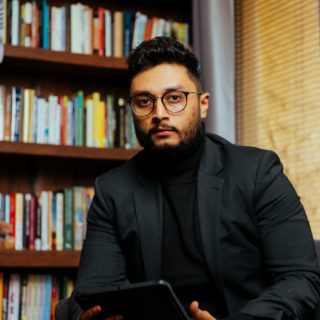
About the Health Equity Department
According to the CDC, “Longstanding systemic health and social inequities have put many racial and ethnic minority groups at increased risk of getting sick and dying.” Imbalances in health equity lead to differences in life expectancy and quality of life, starting before birth and continuing throughout an individual’s lifespan. These health disparities also weigh heavily on the economy, accounting for over $42 billion each year in lost productivity and an estimated $320 billion in healthcare expenditures.
In 2022, CAIR-OK was awarded a grant from the Oklahoma State Department of Health to address health disparities among vulnerable populations. We are working to create and maintain health equity among three key populations: Afghan neighbors, incarcerated Muslims, and the general Muslim community. These target populations have historically faced a lack of access to adequate healthcare, particularly in the area of COVID-19 prevention.
Our work addresses healthcare inequity by making sure everyone can maintain and manage physical and mental health, which requires easy access to information, affordable testing, and care.
Health Assessment Survey
As a part of our health equity work, we are conducting a survey to collect important information which will guide our work. All survey responses will be kept confidential and the time to complete the survey is between 4 to 7 minutes.
This survey will allow us to get a better understanding of the Muslim community’s practice patterns toward various clinical problems and diseases. The responses from the survey will be used as a vital tool to gather information on individual perspectives in a large cohort. Gathering this information will allow us to better assist and serve the community and connect the Oklahoma Muslim community to important health-related resources.
About Our Health Equity Coordinator
 Ruslan Ahasan has always been passionate about the health field and after exploring, he fell in love with Public Health. He graduated with a bachelor’s degree in Public Health and a master’s degree in Public Health (concentration: Community Engagement) from the University of Central Oklahoma.
Ruslan Ahasan has always been passionate about the health field and after exploring, he fell in love with Public Health. He graduated with a bachelor’s degree in Public Health and a master’s degree in Public Health (concentration: Community Engagement) from the University of Central Oklahoma.
Ruslan has previously conducted research on Nicotine Cessation and have also been a part of a publication: Pattern of Empirical use of Antibiotics Therapy. In his time in UCO, he worked as a research assistant for the Public Health Department and a Programming Manager for the Office of Global Affairs, International Student Council and Global Leadership Ambassadors. From his academic and work exposure, Ruslan developed an interest in serving the marginalized and vulnerable communities. He has also interned with organizations such as the Oklahoma department of Mental Health and Substance Abuse services, Physicians Choice Hospice, and Lottie House (Mental Health Association). Along with his mentors and peers, Ruslan presented in multiple seminars like Oklahoma Public Health Association (OPHA) and Oklahoma Recreation and Parks Society (OPRS).
With his passion and experience in the Public Health field, Ruslan is dedicated to work for communities and individuals that are affected by Health disparities.

